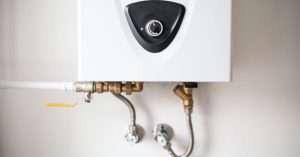Who Is an Electrical Contractor: An Essential Guide
If you are wondering who is an electrical contractor, especially in large-scale projects? Here’s what you need to know about the essential guide for electrical services.
Electrical contractors ensure there is safety and efficiency, including energy efficiency, in every area of the building operations they may be assigned to, especially in electrical work.
Because that is their main objective, following the protocols for ensuring safety and maintaining an electrical contracting project, sometimes facilitated by using electrical contractor software.
However, electrical contractors play a significant role in electrical projects as they are responsible for the installation, design, and maintenance of electrical systems alongside master electricians.
An electrical company can handle any electrical service issue your building may be experiencing, catering to all your electrical needs as they stand behind every project with their lifetime commitment to quality and safety.
Let’s delve into understanding who is an electrical contractor and the foundational knowledge needed by following this simple essential guide.
Let’s explore.
Who is an electrical contractor
You must have read from numerous sites concerning who an electrical contractor is, and you may still be wondering; however, an electrical contractor, including inside electrical contractors, is a licensed professional who can install, design, and maintain electrical systems, which is the difference between an electrical contractor and an electrician.
Also, they work in commercial, residential, and industrial buildings, which is part of their duties to make sure there is safety and efficiency in electrical needs and projects that they may be assigned to and including ensuring compliance with the project.

What does an electrical contractor do?
Electrical contractors perform a variety of tasks related to installing and maintaining electrical equipment, including lighting systems, and providing maintenance services, along with completing administrative duties and delivering high-quality customer service.
Some administrative and customer service tasks include consulting with clients, scheduling appointments, and managing paperwork.
A contractor’s maintenance work often involves inspecting equipment, replacing or repairing ageing parts, and restoring functions to electrical systems.
What is the difference between an electrician and an electrical contractor?
In general, an electrician is an individual who performs electrical maintenance and repair tasks, while an electrical contractor and an electrician are differentiated by their licensing and business roles.
However, most individual electrical contractors have the experience and education to work as electricians, along with additional licensure that allows them to own a business and hire other electrical professionals.
What is the work environment of an electrical contractor like?
Electrical contractors may work in diverse settings under various conditions.
Depending on their area of specialty, some electrical contractors may work in private residences while others may work for commercial buildings or even the government.
Some contractors may work on construction sites around heavy machinery.
How to become an electrical contractor
Here are the steps for becoming an electrical contractor:
1. Complete an apprenticeship or vocational program
The first step to becoming an electrical contractor is to complete training as an electrician, which can include working on residential projects.
Electricians may not need a college diploma if they have earned sufficient experience through the completion of an apprenticeship under an experienced electrician.
2. Gain experience
Although after you have completed your electrician training, you can ensure to work with the electrical industry to gain more experience.
3. Apply for licensure
After you have gained experience in the electrical field, you can then apply for licensure as an electrical contractor in the field.
However, licensing requirements for licensure vary based on the state you are in, and it is essential to conduct thorough research for the documents that will be needed in the state you are in for your plan to work in the construction industry and for you to be able to apply for licensure.

What skills do electrical contractors use?
Electrical contractors use a combination of hard and soft skills, including project management, to excel in their job.
Here are some skills that contractors use to ensure their projected growth, including electrical contractor software:
I. Technical knowledge
Electrical contractors should have technical knowledge to work safely with electrical equipment.
II. Critical thinking
Critical thinking is the ability to gather information, assess challenges, and solve complex problems related to electrical components.
Electrical contractors use critical thinking skills to evaluate electrical issues and develop strategies to intervene safely.
III. Attention to detail
Attention to detail is another essential skill for electrical contractors. Contractors may work with dangerous equipment like power tools and electrical devices.
Additionally, contractors may use attention to detail when planning complex electrical projects, like designing the wiring for a large building.
They observe their work for accuracy to make sure they complete projects to their client’s specifications.
IV. Communication
Electrical contractors may use verbal and written communication skills when working with others or consulting with clients about the building’s integrated systems.
While some contractors complete jobs independently, there may be times when they work as part of a team to complete larger electrical projects. Contractors who hire other electricians to work for them may use communication skills to express their expectations, assign jobs, and provide feedback.
When consulting with clients about power distribution, contractors might use listening skills to understand the client’s request. They may also use written communication skills to correspond with others over email, maintain records of completed jobs, and provide good customer service.
V. Computer skills
Electrical contractors might use the computer to perform some of their work.
Contractors may also use computers as part of their administrative responsibilities. They may manage employee payroll, track expenses, maintain administrative databases, and correspond with clients or employees through electronic messaging.
Effective organizational skills are important in almost every industry, and electrical contractors may use their organizational abilities to manage their time, prioritize tasks, and maintain their tools.
For example, a contractor may schedule many jobs in a week with different clients. They might use organizational strategies like keeping a calendar to remember their appointments and track their projects.
If an emergency arises, electrical contractors may use their organizational skills to reschedule other appointments so they can respond effectively to the situation.
Electrical contractors may also work with many tools. Additionally, many contractors get their training from technical schools, and keeping their equipment organized and well-maintained can help them find the tools they need for a job.
By caring for their equipment, contractors may keep their tools in working order, which can reduce costs and save time on repairing or replacing materials.
In Conclusion
After reading through this article, you must have learned who an electrical contractor is, what they do, and the job outlook for electrical contractors that you may need to know.
Also, having integrated building systems contractors and electrical contractors in any modern construction project, especially in commercial projects, is crucial, especially in new construction projects.
However, if you are planning on becoming an electrical contractor, make sure to be active on the updates coming from industry trends and so on, so you will always be updated with the latest equipment and standards.













